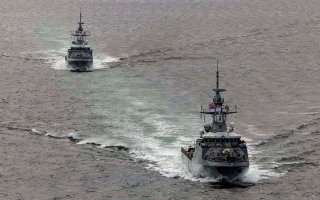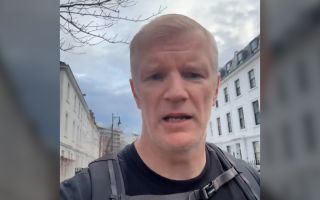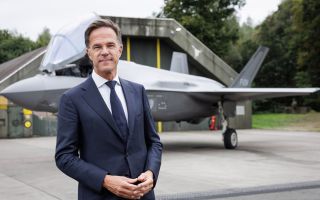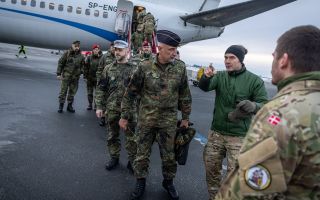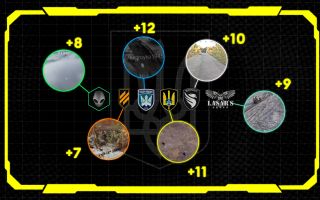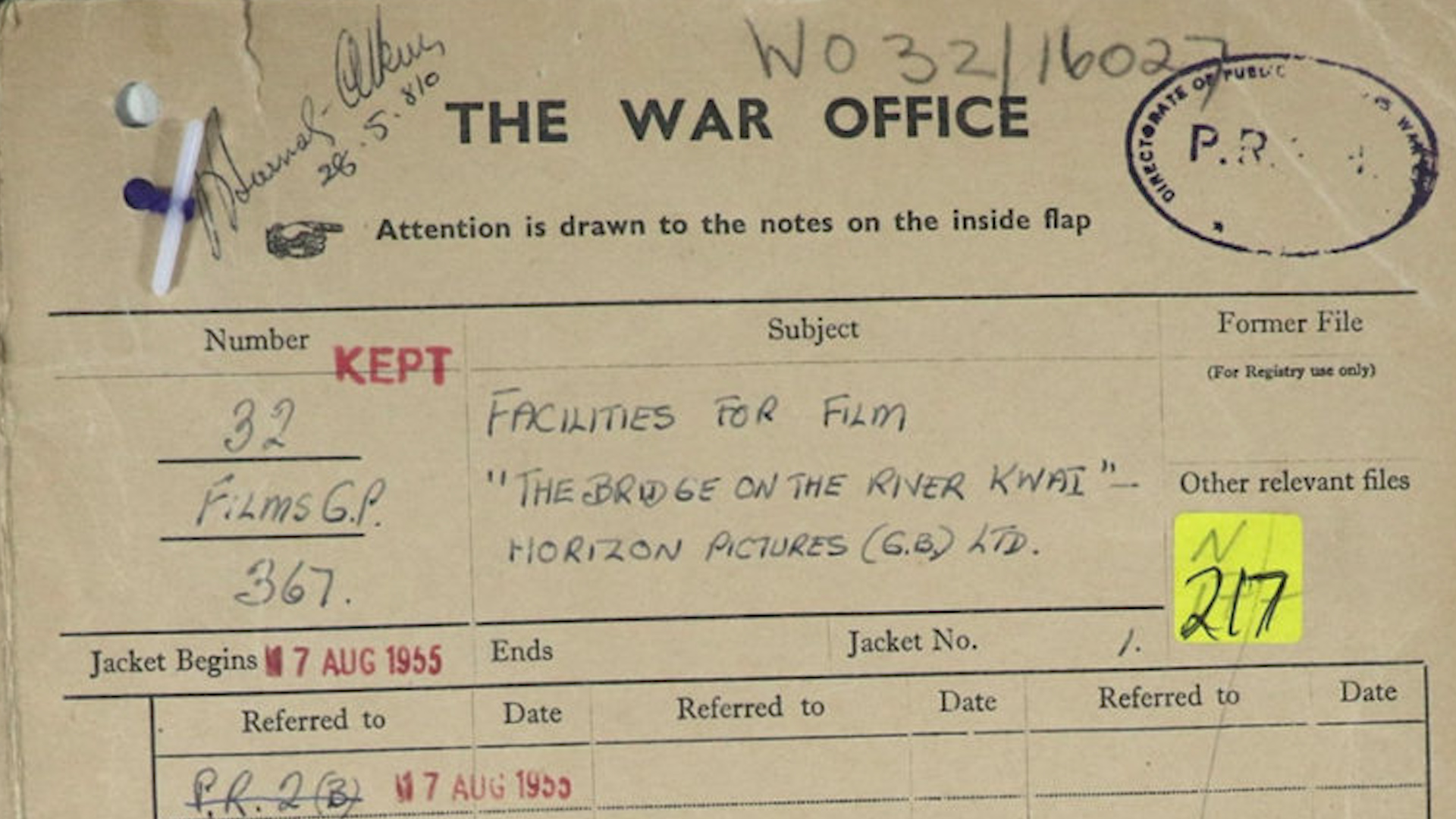
Letters show War Office objection to Bridge On The River Kwai film

A decade after the end of the Second World War, there was friction between the British War Office and the filmmakers behind one of the most famous depictions of the war in the Far East.
The Bridge on the River Kwai was filmed in the 1950s and set in a Japanese prisoner of war (POW) camp in Burma.
The film, based on a novel by Pierre Boule and filmed a decade after the end of the war, depicts captured Second World War soldiers working on a bridge to connect Bangkok and Rangoon.
Letters in the National Archives show the War Office was "not entirely happy" about the story, which shows British Commanding Officer Lieutenant Colonel Nicholson strike a compromise with the Japanese camp commander.
Lt Col Nicholson was played by British star Alec Guinness in the film.
He encourages his men to build the bridge well, demonstrating professionalism and high morale to their enemy.
The War Office’s Public Relations department was sent a preliminary script for the film in April 1955, seeking support for the creative process.
Sarah Castagnetti, Visual Collection Team manager at the National Archives, told the BFBS Sitrep podcast: "Initially, they thought they might want to film in Singapore and there was a British military presence in Singapore."
In September, Major A G Close wrote to Colonel L J Wood, Deputy Director of Public Relations, to say: "I do not think much of this story.
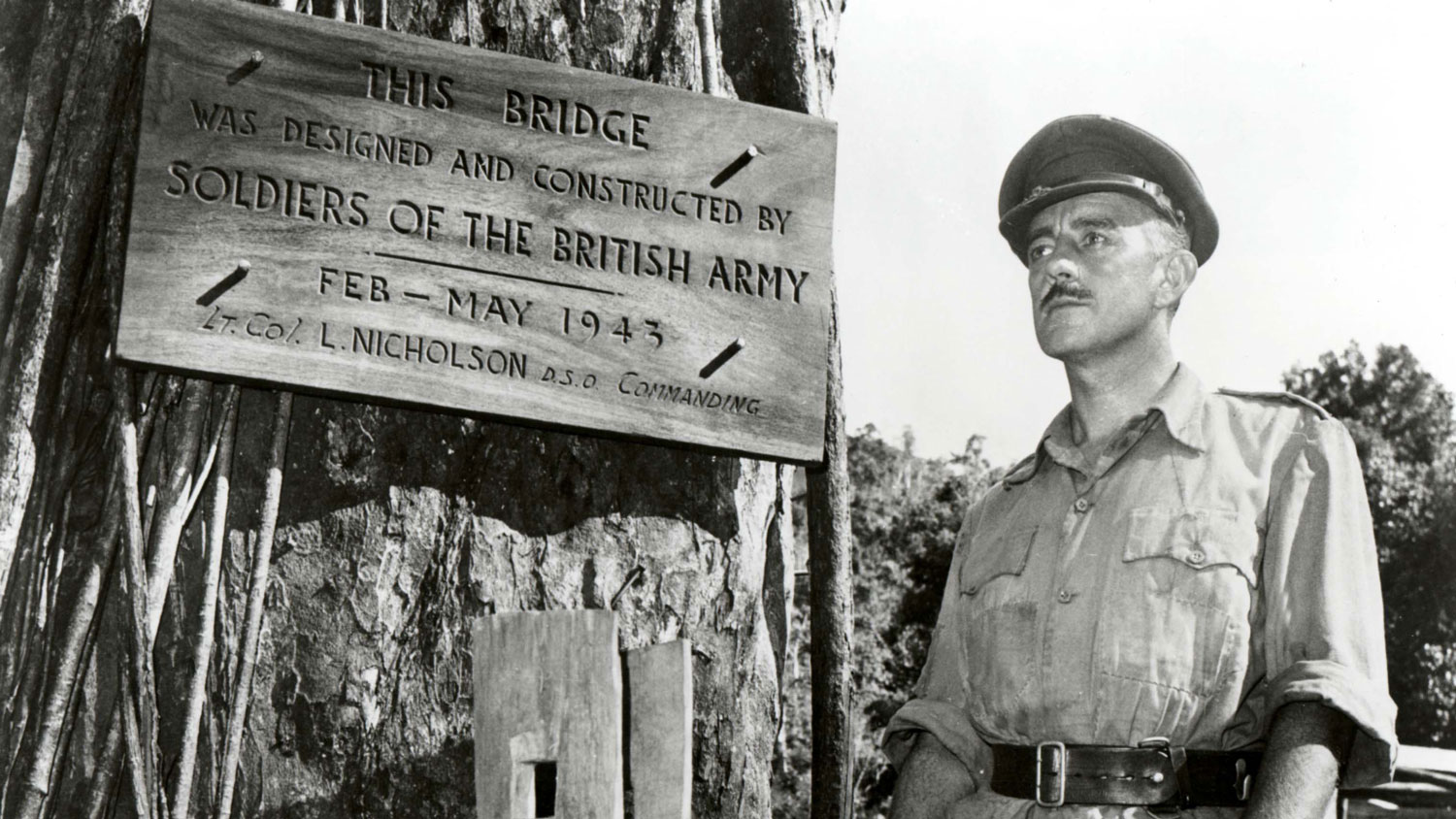
"In the first instance, it is quite untrue and only very occasionally resembles the facts as they were at the time.
"I am perhaps biased as I worked for three and a half years on this particular railway.
"I have, however, asked independent people to read the script and they agree with me that it would not go down well with the British public."
The UK officials were "quite sensitive" over the writing of the Lieutenant Colonel Nicholson, which "they felt, really, made him look like a collaborator," said Ms Castagnetti.
Scriptwriter Carl Foreman assured Maj Close "changes to the script" would remove any "lingering doubts".
Official approval was granted one year later, securing the possibility of RAF support for the film.
However, Assistant Director of Public Relations, Lieutenant Colonel J H S Martin, maintained the story contained "inaccuracies".
Producer Sam Spiegel went on to use a former POW technical director, as advised by the War Office, in Major General Lance Perowne, a former commander of the 17th Gurkha Division in Malaya.
However, news of the filming reached Lieutenant General Arthur Percival, chairman of the National Federation of Far Eastern Prisoners of War (FEPOW).
Concerned the public would view the depicted events as true and view the POW community differently, he told the War Office: "[FEPOW members] suffered a great deal for it and they would now deeply resent the presentation of any film which tended to misrepresent and cast aspersions on their conduct."
As Mr Spiegel defended the plot, Major General Perowne rejected the idea that audiences would mistake the events for reality, which saw many prisoners sabotage forced construction.
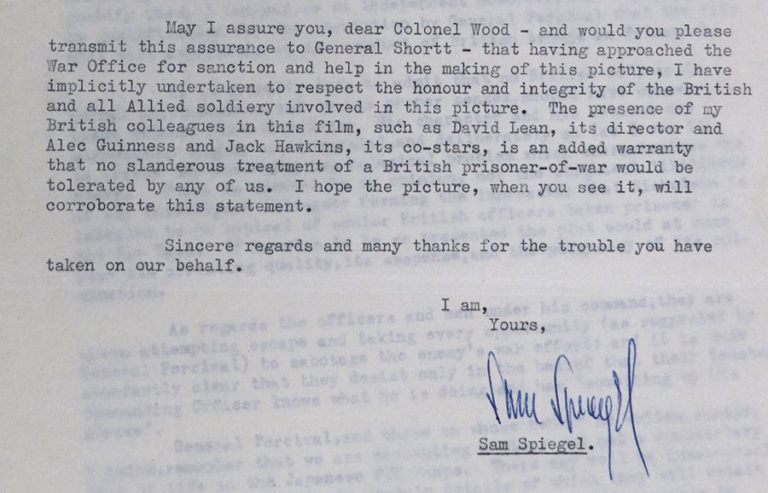
The three parties attempted to compromise on a disclaimer stressing the fictional nature of the film.
The set had been switched from Singapore to Sri Lanka so Mr Spiegel no longer required War Office assistance, leaving the officials without leverage over the producer.
Original, lengthy proposal drafts were rejected by the filmmakers, who opted for a brief on-screen statement ahead of the UK premiere, which angered the FEPOW.
Ms Castagnetti said: "I'm not surprised Spiegel didn't use them because in many ways it took away from the effect of the film.
"He agreed to that minimised line on the film, but then in the end it was only shown briefly in London, perhaps for the first few weeks it wasn't shown anywhere outside of London and then they just stopped showing it altogether."
The film was a huge box office hit and won eight Academy Awards in 1958, including Best Director for David Lean and Best Actor for Alec Guinness.
Click here to listen to the full interview with Sarah Castagnetti on BFBS Sitrep, or choose one of the podcast links below.

